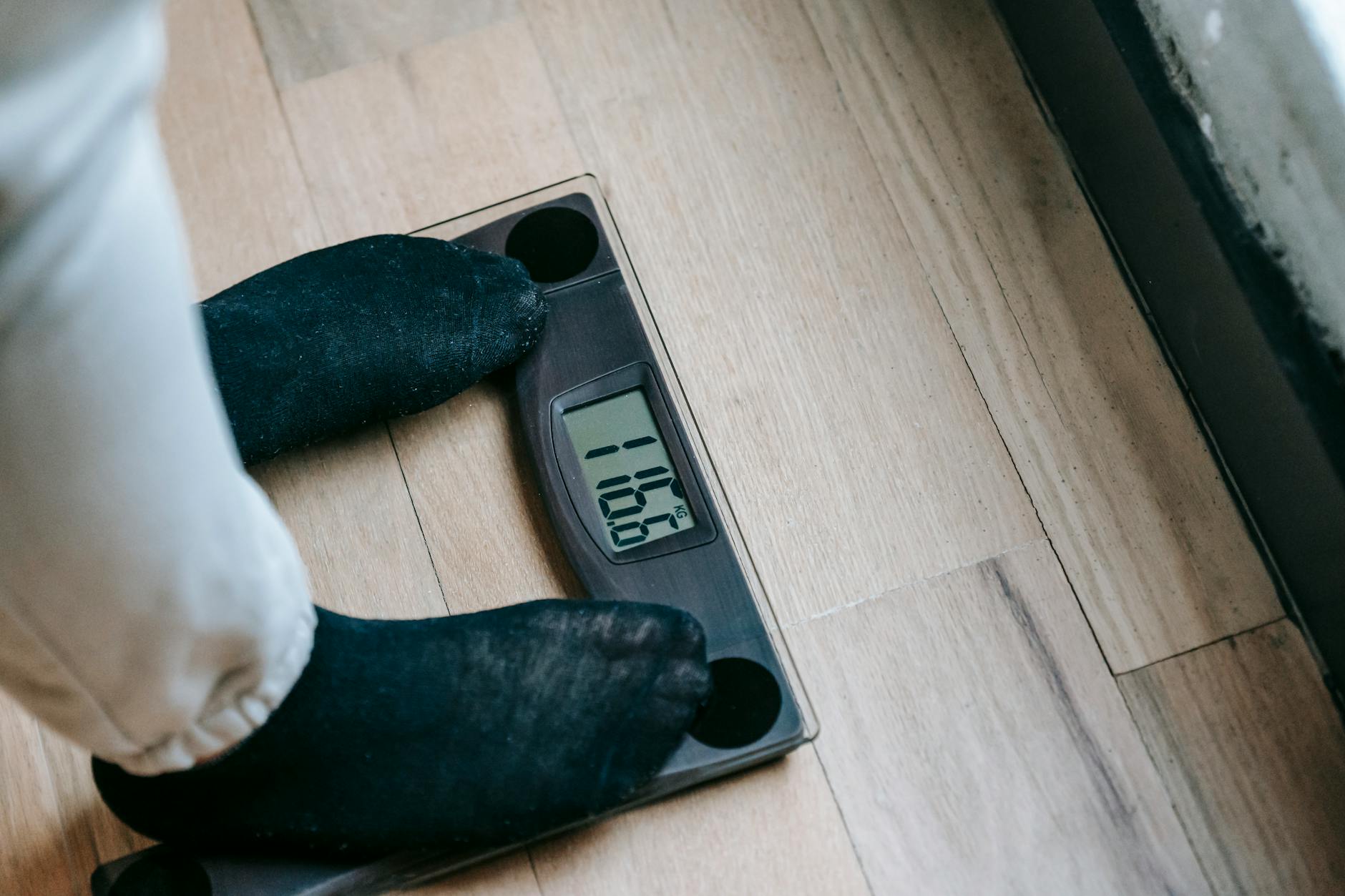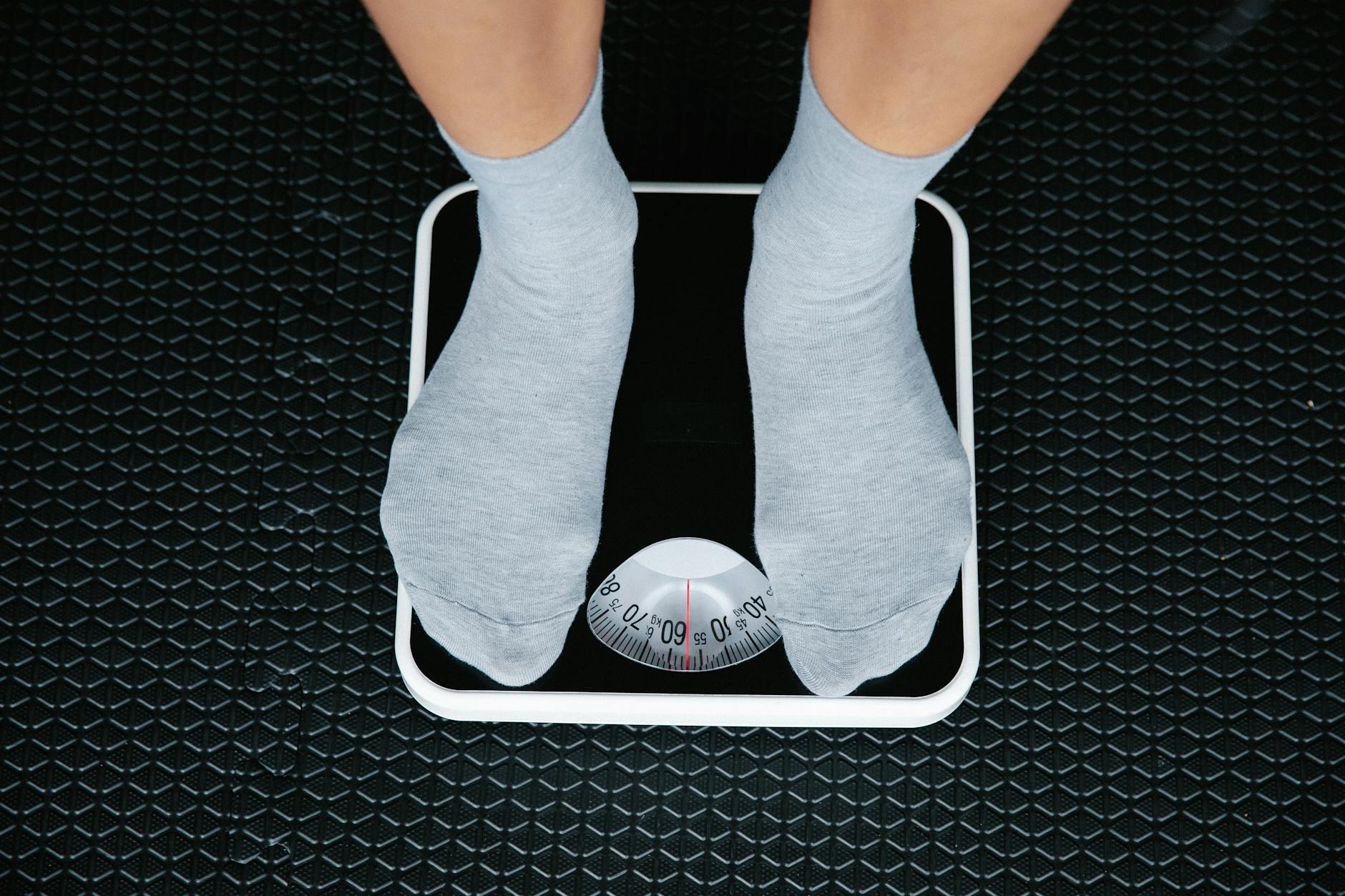Some of the links on this website are affiliate links, which means that if you click on a link and make a purchase, I may earn a small commission at no extra cost to you. I only recommend products or services that I use, trust, and believe will add value to my readers.
This helps support the work I do and keeps this site running—thank you for your support!
Greg is a U.S. Marine Corps veteran, a distance runner, and a fitness enthusiast who’s passionate about helping people achieve real, lasting results.
If you’re trying to figure out the truth about intermittent fasting and weight loss, you’re not alone. Most people encounter numerous myths and mixed messages.
Here, I’ll break down what intermittent fasting can actually offer, especially if you’re focused on home workout routines, a fat-burning morning routine, or clean eating for beginners.
Whether you want to lose weight, build a sustainable routine, or find the best supplements for fat loss, you’ll get an honest assessment—no hype or empty promises. If you’re interested in a supplement to support your journey, you can check out mytoplin loss supplement here.
Let’s clear up the confusion so you can get fit without the gym and maximize your results.
Key Takeaway
 Photo by Andres Ayrton
Photo by Andres Ayrton
Understanding the truth about intermittent fasting and weight loss doesn’t have to feel overwhelming. At the core, it’s a straightforward approach with unique effects on the body and daily routine. From my own journey and countless conversations with people who want to get fit without the gym, I know how tempting it is to chase every new trend.
However, before you adopt this style of eating, consider the practical lessons and evidence that accompany it.
What Intermittent Fasting Really Delivers
Intermittent fasting isn’t a magic fix, but it does offer clear benefits if you use it the right way. For many people looking for real results with their home workout routines or building a fat-burning morning routine, intermittent fasting can help:
- Encourage a calorie deficit by naturally narrowing your eating window. For most, this is what drives the weight loss.
- Simplify meal planning, reducing the need for elaborate prep and making clean eating for beginners feel much more doable.
- Support fat metabolism since the body taps into its fat stores for fuel during the fasting period.
Recent evidence suggests intermittent fasting works as well as, or only slightly better than, traditional calorie-restriction diets when it comes to weight loss. You can get a deeper breakdown on the science from Harvard Health’s resource on intermittent fasting and weight loss.
The Key Ingredients for Success
From my perspective, intermittent fasting doesn’t act alone. If you’re aiming for lasting results and less frustration, these factors matter just as much:
- Consistent home workout routines using bodyweight exercises or light equipment
- A fat-burning morning routine that might include hydration, movement, and a balanced break-fast meal
- Prioritizing clean eating for beginners, focusing on whole foods and fewer processed snacks
- Smart use of fat-burning supplements (like my top recommended supplement) to support your overall plan
Stacking these together keeps you moving forward, even if the scale sometimes stalls.
Balancing Fasting with Real Life
We’ve all heard promises about dramatic weight loss. The real truth about intermittent fasting and weight loss is that it only works when it fits your schedule, your hunger cues, and your health.
For some, a flexible fasting window such as 12:12 or 14:10 helps maintain progress longer, as described in my post on proven ways to burn fat naturally.
You don’t need to starve yourself or follow strict rules if they don’t fit your life. Intermittent fasting is just one tool—pair it with the best supplements for fat loss, quality food choices, and workouts that excite you, and you’ll see that getting fit without the gym is possible.
If you want a closer look at nutrition strategies, you’ll find helpful tips in my Nutrition and Diet Tips section.
What to Remember
The biggest takeaway? Intermittent fasting can help you lose weight, but it isn’t a one-size-fits-all fix. Build it into a bigger plan that includes movement, clean eating, and smart support like effective supplements.
You’ll feel and see more results than just following the crowd. For a summary of how intermittent fasting fits into an overall approach, check out this breakdown by Johns Hopkins Medicine.
What is Intermittent Fasting and Why Is It So Popular?
Intermittent fasting has become a buzzword among people who want simple, realistic ways to lose weight without the pressure of strict dieting. At its core, intermittent fasting means cycling between periods of eating and fasting.
The rise in popularity isn’t just a fad; it connects with anyone looking to build healthy routines that fit into real life—especially if you’re motivated by goals like getting fit without the gym, mastering clean eating for beginners, or finding the best supplements for fat loss.
Defining Intermittent Fasting
Put simply, intermittent fasting is an eating schedule that flips the script from “what to eat” to “when to eat.” Instead of sticking to set meal plans, you set a window of time when you eat and a window when you don’t. The most common methods are:
- 16:8: Fast for 16 hours, eat during an 8-hour window.
- 14:10: Fast for 14 hours and eat for 10.
- Eat-Stop-Eat: Fast for 24 hours once or twice a week.
- 5:2 Approach: Eat normally for five days, cut calories for two days.
This flexible structure lets you tailor fasting windows to your work schedule or your favorite fat-burning morning routine.
Why Intermittent Fasting Has Taken Off
People flock to intermittent fasting because it feels natural and less restrictive. Here’s why it stands out:
- No calorie counting: You focus on timing, not constant tracking.
- Simple meal prepping: Less fuss means clean eating for beginners feels doable.
- Fewer meals to plan: This supports those who juggle busy days and want home workout routines to come first.
- Boosts metabolic changes: Research points out that fasting helps the body tap into stored fat, which is what most of us want when talking about the truth about intermittent fasting and weight loss.
The real magic for many is the mental freedom. Instead of being chained to a food diary, you get a break from thinking about food all day.
The Science-Backed Benefits Making Fasting Popular
The buzz around intermittent fasting goes beyond hype. Studies show intermittent fasting can:
- Support weight loss by narrowing eating windows, leading to natural calorie reduction.
- Improve blood sugar control, which matters for long-term health.
- Enhance fat oxidation, especially if paired with a solid home workout routine or fat-burning morning routine.
For anyone looking for more details, the Johns Hopkins Medicine guide on intermittent fasting lays out how this eating pattern works with the body’s natural rhythms.
Intermittent Fasting, Supplements, and Real-Life Routines
Success with intermittent fasting often comes from pairing it with smart habits and help where needed. Many include:
- Quality fat-burning supplements to bridge nutrition gaps and support fat loss goals.
- Home workout routines that boost metabolism during the fasting window.
- Emphasis on clean eating for beginners to maximize results and restore energy.
- A focus on sustainable habits, not temporary extremes.
If you want an example of a supplement designed to support your journey, you can check out mytolin loss supplement here.
 Photo by MART PRODUCTION
Photo by MART PRODUCTION
Why It Appeals to People Tired of Old Diet Rules
Old-school, restrictive diets usually fizzle out fast—especially for anyone balancing work, family, or lots of time at home. Intermittent fasting hands some control back to you.
You choose your window, you set the pace, and you decide how it fits with your other health goals.
If you’re just learning about fasting or want tips on combining it with effective home workout routines, digging into resources like the Mayo Clinic’s summary of intermittent fasting benefits can clarify what it offers (and what it doesn’t promise).
People are drawn to intermittent fasting because it’s flexible, realistic, and matches real life. When it lines up with the truth about intermittent fasting and weight loss, it’s easy to see why it’s earned its spot as one of the top methods for getting fit without the gym.
Does Intermittent Fasting Actually Help You Lose Weight?
The truth about intermittent fasting and weight loss is simple—while it can definitely help some people drop pounds, its effects go beyond what you see on the scale.
Let’s break down the health perks you might not expect, and clear up the common myths so you have real facts in your toolkit.
Benefits Beyond the Scale: Health Perks of Fasting
 Photo by hello aesthe
Photo by hello aesthe
Intermittent fasting isn’t just about weight loss. It sets off some positive changes inside your body that aren’t as obvious as a shrinking waistline. Here’s what research and real-world stories are telling us:
- Improved insulin sensitivity: Studies show that early time-restricted feeding (a type of intermittent fasting) can make your body respond better to insulin, lowering blood sugar levels and supporting steady energy.
- This is especially helpful if you’re aiming to pair fasting with a fat-burning morning routine and stick to clean eating for beginners. For a deeper dive into the science, consider this study on improved insulin sensitivity with time-restricted fasting.
- Reduced inflammation: Intermittent fasting may help lower the body’s inflammatory markers. Lower inflammation can mean less risk of chronic diseases like heart disease, diabetes, and more.
- Better blood lipids: Research suggests some fasting patterns can improve cholesterol numbers, which is good news if you want results that go beyond the scale. Read more about glucose and lipid improvements from fasting in this clinical research summary.
Anecdotal evidence is everywhere—people sharing how they feel less bloated, have more focus, and crave less sugar. When you combine fasting with solid home workout routines or the best supplements for fat loss, you make your body a lot more efficient.
Research findings keep coming in, and while not every study agrees on the “best” approach, the benefits are real for many. If you want changes beyond appearance, intermittent fasting gives your cells (and your brain) a reset every day.
Common Myths and Misconceptions
Even though the internet is full of advice, not all of it is rooted in the truth about intermittent fasting and weight loss. Let’s clear up a few myths:
- Myth 1: “You can eat anything during eating windows.”
Some believe the fasting window is a free-for-all when it comes to calories or processed foods. Not true. What you eat still matters—a lot. Fasting works best when paired with clean eating for beginners, focusing on whole, unprocessed foods. Loading up on junk food will stall results, no matter how long your fast is. - Myth 2: “Fasting works for everyone.”
Intermittent fasting isn’t a universal fix. Some people thrive and feel great; others struggle with energy dips, poor focus, or even anxiety. You need to tune into your own body, health needs, and daily life. Always be cautious about one-size-fits-all advice, especially if you see extreme claims that ignore personal differences. - Myth 3: “Home workout routines and supplements aren’t needed.”
Wrong. Fasting pairs best with movement and nutrition support. A fat-burning morning routine and the best supplements for fat loss, like mytolin loss supplement, give structure and support for balanced results.
If you ever see a tip or trend that suggests you should starve yourself, skip important nutrients, or ignore how you feel just to stick with fasting, press pause.
When in doubt, combine fasting with healthy habits, and if needed, consult a registered dietitian or your healthcare provider.
Intermittent fasting can be a useful tool for weight loss and general well-being, but only when used as part of a plan built around real food, movement, and steady support.
Whether you’re getting fit without the gym, designing your home workout routines, or exploring fat-burning supplements, rely on what supports your unique path—not just the latest online buzz.
How to Combine Intermittent Fasting With Other Weight Loss Strategies
When you think about the truth about intermittent fasting and weight loss, it’s not just about skipping meals or counting the hours—your results can skyrocket when you pair fasting with the right daily habits.
To get the most out of your efforts, I focus on mixing fasting with a smart fat-burning morning routine and simple, clean eating for beginners. Here’s how these strategies work together to achieve lasting weight loss, increased energy, and improved health.
The Role of a Fat-Burning Morning Routine
 Photo by Annushka Ahuja
Photo by Annushka Ahuja
Pairing intermittent fasting with a purposeful morning routine helps your body flip the fat-burning switch faster. When you wake up in a fasted state, your body is primed to burn stored fat for fuel—which means your first moves of the day set the tone for real progress.
Here’s why a morning routine matters:
- Enhances fat metabolism: Any movement while fasted—walking, yoga, or light bodyweight workouts—trains your body to use fat for energy.
- Jumpstarts your metabolism: A small bout of morning activity can raise your calorie burn for the rest of the day.
- Boosts consistency: Having a set routine anchors your fasting plan and makes it easier to stick with.
Beginner-friendly morning fat-burning ideas:
- Hydrate first: Drink a tall glass of water with a pinch of sea salt.
- Take a 10-15 minute brisk walk outside or do a beginner-friendly stretch flow.
- Experiment with light resistance routines (try squats, pushups, or planks) to activate your muscles without overdoing it.
- Use strategic fat-burning supplements like mytolin loss supplement right before your eating window to keep energy up and cravings down.
- For more ideas, check out these top morning fat burners to start your day.
On days you hit your home workout routines, plan them during or just after your fast for an extra calorie burn. These habits make intermittent fasting feel less like a chore and more like a powerful tool in getting fit without the gym.
Clean Eating and Intermittent Fasting for Beginners
The truth about intermittent fasting and weight loss is clear: What and how you eat after fasting makes all the difference. Breaking your fast with clean, nourishing food magnifies your results and keeps your energy steady throughout the day.
If you’re new to clean eating for beginners, here’s what to aim for during your eating window:
- Focus on whole, nutrient-dense foods. Fill your plate with colorful veggies, lean protein, healthy fats, and slow-digesting carbs.
- Skip the processed “reward” trap. It’s tempting to grab whatever’s handy when the fasting clock ends, but you’ll get better—and longer-lasting—results by sticking mostly to non-processed meals.
- Stay hydrated. Don’t forget to drink water throughout your eating window to support fat loss and digestion.
- Add a scoop of protein powder or collagen to your first meal for muscle retention and better satiety.
Simple clean meals to break your fast:
- Greek yogurt with berries and seeds
- Scrambled eggs with spinach and tomatoes
- Grilled chicken with roasted sweet potatoes and avocado
- Overnight oats with almond butter and banana
If you want a quick start guide, look at my Clean Eating Guide for Beginners for more food ideas and tips on what to eat and what to avoid.
Pairing intermittent fasting with a sensible eating routine stabilizes energy, reduces cravings, and creates a sustainable pattern you can enjoy—not just endure. Stack that with a regular fat-burning morning routine, and you’ll see why so many people are getting fit without the gym while enjoying their food.
When you bring together fasting, real food, light morning movement, and the best supplements for fat loss, your approach finally feels like it works with you, not against you. This pairing is what takes the truth about intermittent fasting and weight loss from hype to habits that last.
Best Supplements for Fat Loss: Do You Need Them When Fasting?
When it comes to the truth about intermittent fasting and weight loss, supplements are always a hot topic. People often ask if they really need extra support when combining fasting with home workout routines, a fat-burning morning routine, or clean eating for beginners.
Fat-burning supplements promise faster progress, but do they help when your eating window is already limited? Here’s what I’ve learned from my journey and what science has to say.
 Photo by Anna Tarazevich
Photo by Anna Tarazevich
What Are the Best Supplements for Fat Loss?
If you’re looking for a shortcut, you might be disappointed. Supplements should never replace quality nutrition or a real movement plan. Instead, the best supplements for fat loss work as helpers alongside your main routine:
- Caffeine and green tea extract: These help boost energy and metabolism, perfect for those early fasted workouts or as a pre-break-fast boost.
- L-carnitine: Assists the body in using fat for fuel, supporting the natural fat-burning that comes with fasting and consistent home workout routines.
- Protein supplements: These help prevent muscle loss while keeping you full, which is especially useful if your eating window feels short. Mixing a scoop of quality protein powder into your break-fast meal is a smart move.
- Fiber supplements: Can curb cravings and support digestion, which makes sticking to clean eating for beginners a lot easier.
For a hands-on list and honest feedback, I share my complete breakdown of proven picks in my review on the Top Weight Loss Supplements for 2025.
Do You Need Supplements When Fasting?
Supplements are not a must for every fasting plan. The main reason some choose fat-burning supplements while fasting is to support energy, control appetite, and fill gaps in nutrition. For example, when you push through a tough workout or feel low on energy after a long fasting period, a targeted supplement can give you an edge.
Here’s how I know if a supplement can help:
- My energy drops during a fat-burning morning routine or works out at home.
- I’m struggling with cravings or late-day fatigue.
- My meals lack enough protein, healthy fats, or micronutrients.
When these boxes are checked, I include safe, clean supplements with my food break or within my eating window. My personal pick for staying on track is the mytolin loss supplement, which works well whether you’re fasting or not.
Which Fat-Burning Supplements Pair Best with Intermittent Fasting?
Not all supplements are fasting-friendly. Here are the kinds I look for when stacking fasting with getting fit without the gym:
- Natural metabolism boosters (like green coffee bean or teas)
- Stimulant-free options for those sensitive to caffeine
- Collagen or whey protein to protect muscle and curb hunger
- Electrolyte blends to stay hydrated, especially after fasted workouts
If you want my honest feedback on daily fitness supplements that keep me fueled and focused, take a look at Greg’s Favorite Fitness Supplements. I only use what fits my fasting window without weighing me down.
How to Use Supplements the Smart Way
Most supplements are only useful if you already have your home workout routines, clean eating, and sleep habits dialed in. Before adding anything new, I review my basics:
- Am I moving enough every day?
- Are my meals mostly whole foods?
- Do I feel good when I wake up and wind down?
If yes, I might add a supplement like the mytolin loss supplement for extra fat-burning support. If not, I double down on routine and food before turning to the supplement shelf.
The truth about intermittent fasting and weight loss is simple: supplements amplify effort but can never replace it. Make them the backup singers, not the headliner, and your results will last much longer.
For more insights on getting fit without the gym, building your plan at home, and maximizing your results, check out the Ultimate Home Fitness Stack for tools that really work.
Frequently Asked Questions (FAQ) About Intermittent Fasting and Weight Loss
There’s a lot of curiosity (and confusion) around intermittent fasting, especially when it comes to weight loss. I hear these questions all the time from people who want to take the guesswork out of getting fit without the gym or want real talk about home workout routines, fat-burning morning routines, and clean eating for beginners.
If you’re ready for straightforward answers, this section will give you the clarity and confidence you need.
Is Intermittent Fasting Safe for Everyone?
Not everyone should jump into intermittent fasting without a little homework. While many find it safe and even enjoyable, there are groups who should use caution or skip it altogether.
If you’re pregnant, breastfeeding, have a history of eating disorders, or manage diabetes, always check with your healthcare provider first.
For most healthy adults, intermittent fasting is usually considered safe. Start with a gentle approach, like a 12:12 window, and pay attention to your body’s feedback. If you feel jittery, overly hungry, or your performance suffers, it might not be the right fit for you.
Can I Exercise During a Fasted State?
Exercising during a fasted state is common, especially with home workout routines and fat-burning morning routines. Many people experience an extra kick in fat burning because the body taps into stored fat for energy.
Light to moderate exercise like brisk walking, yoga, or resistance training is usually fine for most. If you start to feel dizzy or weak, know it’s okay to break your fast and refuel.
Want ideas for approachable routines while fasting? I have several that make fasted movement feel rewarding in my guides to bodyweight training for weight loss.
What Should I Eat When the Fast Breaks?
After fasting, your first meal matters much more than most people think. Aim for a mix of lean protein, quality carbs, and healthy fats to restock your energy and curb hunger. Skip sugary, processed foods that spike blood sugar and zap your focus.
A few go-to ideas I recommend:
- Scrambled eggs with avocado and veggies
- Greek yogurt with berries and nuts
- Grilled chicken with roasted sweet potatoes and greens
If you want a starter guide, my Clean Eating Guide for Beginners has tons of simple meal ideas perfect for your first post-fast meal.
Do Fat-Burning Supplements Really Work with Fasting?
You’ll get a lot of hype about fat-burning supplements, especially when tackling fasting and weight loss at the same time. In my experience—and in the science—they can be useful as a support, never as the foundation of your plan.
The best supplements for fat loss, such as green tea extract, caffeine, or protein powder, can help curb appetite, maintain steady energy levels, and fill nutritional gaps.
For those looking to add a supplement, I recommend my favorite, the mytolin loss supplement, which works well whether you’re fasting, starting a fat-burning morning routine, or just aiming to stay full and focused.
Can Intermittent Fasting Help If I Don’t Want to Go to a Gym?
Absolutely. In fact, intermittent fasting pairs naturally with getting fit without the gym. You can combine fasting with daily walks, at-home strength routines, or short, fat-burning morning routines and see real results.
The simplicity of fasting makes it easy to stack good habits on top. If you want to build a home-based routine, you’ll find plenty of ideas in my article on the ultimate home fitness stack.
Do I Have to Skip Breakfast for Fasting to Work?
No, you get to choose your eating window! Some people prefer a late breakfast, while others feel best starting their eating window earlier. I suggest experimenting to find what fits your hunger and life schedule. The magic of intermittent fasting is in the routine—not the clock.
What If I Mess Up My Fasting Window?
Don’t stress over a missed window, an early meal, or a late-night snack. Progress is about consistency over time, not perfection each day.
Forgiving yourself, making a mental note, and moving forward is key. Remember, fasting is just one piece of the puzzle, alongside clean eating, good sleep, and steady movement.
Where Can I Learn More About Intermittent Fasting Benefits?
If you’re craving more details or want a deeper look at specific benefits (like supporting metabolism or improving blood sugar), check out this science-backed summary of intermittent fasting benefits from Mayo Clinic. For hands-on routines, tips, and real results, spend some time exploring my nutrition and diet tips section.
These answers highlight the truth about intermittent fasting and weight loss while clearing up common roadblocks. If you’re building your plan around home workout routines, a fat-burning morning routine, or aiming for sustainable habits like clean eating for beginners, these FAQs can keep you moving forward.
Conclusion
The truth about intermittent fasting and weight loss is simple: it can work, but only as part of something bigger. Your best results will come from combining consistent home workout routines, a reliable fat-burning morning routine, and clean eating for beginners with patience and self-awareness.
There’s no perfect formula—just the ongoing effort to find what clicks for your life, your goals, and your energy.
Choose routines that support both your health and your happiness, and don’t be afraid to fine-tune them as you go. If you’re looking for an extra boost, a quality fat-burning supplement like mytolin loss supplement can fit into your plan, but real progress comes from what you do every day.
My experience as an Air Force veteran and distance runner taught me that sustainable change is built one decision at a time. Stick with it, take pride in small wins, and remember you don’t need a gym to get strong and stay healthy.
Thanks for reading—I’d love to hear how intermittent fasting, innovative routines, or the best supplements for fat loss fit into your journey toward achieving a fit body without the gym.


Winton here from Iowa. I’m starting a new project (https://kutt.it/GPTtheWorld) and I’m listing your business in the AI world on multiple AI directories that I created on ChatGPT – and I want to make sure I have all of the details correct as soon as possible or I’m just going to run with what I have.
Potential customers are asking AI-powered assistants to “find the best product/service near me,” like it or not, 20% more than search engines in fact. These systems aren’t showing random results. They analyze reviews, verify information, and recommend a ranked list of businesses. The ones at the top are getting the calls. The ones buried—or missing entirely—are invisible.
Long story short, I want to help and you don’t need to learn AI or change how you run your business. You don’t even need to lift a finger. I’m handling everything and already have you listed, I just need to make sure it’s all correct and find out if you want me to add anything additional.
This style of helping is exactly what I’ve done for over 20 years: find the edge before anyone else, buy the tools, build the systems, and make it easy for business owners to win without having to figure it out themselves. I already own the tech, the licenses, and the expertise, you just need to let me know if I have the right information for your listing and I’ll make it happen. We can even chat about making a custom interaction in any capacity if you like.
Anyway, the only downside is that I’m not going to be putting everyone on the very top of the result list, I can’t – so I’m going to offer one business type per zip code, so the window is small. I just wanted to ask you first, if I don’t hear back I’m going to move on to the next business type in the area as I need to finish filling up my database so it covers every service and product provider in town. I also need to ask you how big of an area you’re willing to cover.
Anyway, get back to me today if you would.
Talk soon,
Winston Redford
Cell: 1-319-435-1790
Live Chat: https://goo.gl/5sbTx5
Site: https://kutt.it/deserve2
How much $ does this cost?
Your point of view caught my eye and was very interesting. Thanks. I have a question for you.
Go ahead and ask your question.
Thank you for your sharing. I am worried that I lack creative ideas. It is your article that makes me full of hope. Thank you. But, I have a question, can you help me?